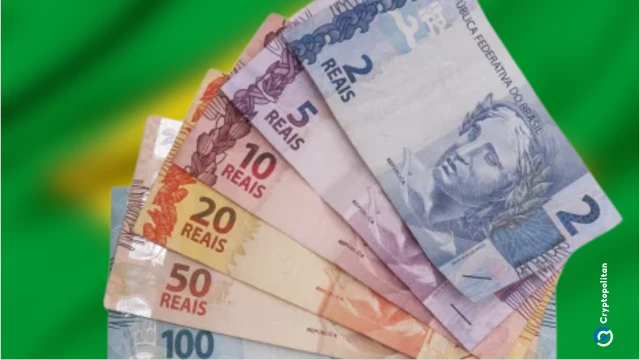
Brazil's classification of stablecoin transactions as foreign exchange operations will take effect in February 2026
Cryptopolitangeneral
Brazil's central bank released on Monday, November 10, long-awaited rules for virtual assets that will affect how stablecoins are classified in a framework that extends the country's existing anti-money-laundering, counter-terrorism, and consumer protection laws to virtual-asset service providers (VASPs) and foreign-exchange (Forex) operators.
📋 Article Summary
Brazil's New Stablecoin Regulations: A Shifting Landscape for Crypto Adoption
As the global cryptocurrency market continues to evolve, Brazil has emerged as a key player in the regulatory landscape, with its central bank recently unveiling a comprehensive framework for virtual assets. At the heart of this new directive lies the classification of stablecoin transactions as foreign exchange operations, a move that will have significant implications for the future of digital finance in the country.
The Brazilian central bank's decision to bring stablecoins under the purview of existing anti-money laundering (AML), counter-terrorism financing (CTF), and consumer protection laws signals a shift in the regulatory priorities. By treating stablecoin transactions as foreign exchange operations, the government aims to bolster its oversight and ensure greater transparency within the virtual asset ecosystem. This change, set to take effect in February 2026, will have far-reaching consequences for both domestic and international crypto investors and service providers operating in Brazil.
One of the primary implications of this regulatory overhaul is the increased compliance burden for virtual asset service providers (VASPs) and foreign exchange (Forex) operators. These entities will now be required to adhere to stringent reporting requirements, know-your-customer (KYC) protocols, and other regulatory safeguards, akin to traditional financial institutions. This heightened scrutiny is expected to drive up operational costs and potentially limit the accessibility of stablecoin-based services for Brazilian consumers.
Moreover, the inclusion of stablecoins within the foreign exchange framework may also impact the broader adoption and integration of digital assets in the country. Stablecoins, often touted as a bridge between traditional finance and the crypto world, have played a pivotal role in facilitating cross-border transactions and providing a stable store of value. By subjecting these instruments to the same regulations as foreign exchange, Brazil may inadvertently inhibit their use in everyday transactions, potentially slowing the pace of crypto adoption among both retail and institutional investors.
Despite these challenges, industry experts remain cautiously optimistic about the long-term implications of Brazil's regulatory shift. Some analysts believe that the new framework could ultimately enhance the credibility and legitimacy of the cryptocurrency sector, attracting greater institutional involvement and fostering a more robust and regulated digital asset ecosystem. Additionally, the increased focus on consumer protection and anti-money laundering measures may help to address the concerns of skeptical policymakers and drive greater mainstream acceptance of cryptocurrencies.
As Brazil forges ahead with its virtual asset regulations, the global crypto community will be closely watching the unfolding developments. The country's decision to classify stablecoin transactions as foreign exchange operations marks a significant milestone in the ongoing quest to strike a balance between innovation and regulatory oversight. The success of this approach will undoubtedly shape the trajectory of cryptocurrency adoption not only in Brazil but also in the broader Latin American region, where the appeal of digital assets continues to grow.